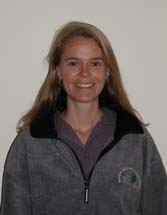
Abstract
Fire is increasingly used as a management tool to control invasive plant species, yet the efficacy of this practice remains unclear given its variable and often undesirable effects on plant communities. Despite evidence that burning can sometimes suppress invasive plants, many studies suggest that fire promotes further invasion and has negative consequences for native plant species. This dilemma arises, in part, because management of invasions typically focuses on the control of single species rather the responses of entire plant communities. Grazing is another commonly used practice for managing invaded ecosystems, yet we know little about how it interacts with fire to influence community responses. In this project, I will conduct field experiments in grasslands of northern California to evaluate:
- the relationship between grazing and fire regimes;
- the importance of different sources of fire variability - such as intensity, frequency, and season of burning - in shaping community responses; and
- whether native and exotic species in different functional groups (e.g., annual and perennial forbs and monocots) differ in their responses to fire.
These experiments will provide crucial insight into the factors that give rise to variation in community responses to fire and will lead to the development of effective restoration strategies for invaded areas. However, because some aspects of these responses would take decades to explore, making them difficult to address empirically, I will also conduct community-matrix model simulations that will consider a range of life history characteristics and variability in fire regimes. This simulation approach will allow me to explore the longer-term consequences of alternative management scenarios for multiple species in invaded systems. By drawing on landscape-level processes to manage plant invasions, this project will provide solutions for maintaining native biodiversity that are relevant over broad geographic and temporal scales.
